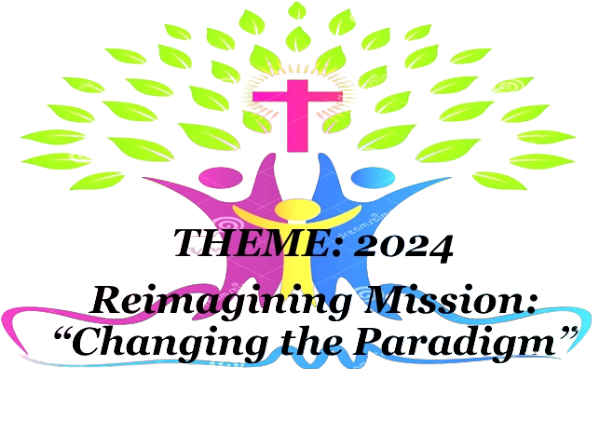Your cart is currently empty!
Sense of Hoplessness
Miranda La Rose Monday, April 10 2017
People in Port-of-Spain may be well dressed, smell good, and outwardly look happy when in fact they are in serious pain experiencing a lot concerns, including distress and a sense of hopelessness, says Anglican Bishop Claude Berkley.
Calling on people not to lose hope and heart and to see the Easter season as a time of reflection of perspectives, Anglican Bishop, Claude Berkley said, “people will make a mess of things as is human nature, but get back on course and strive to make right.” Delivering the sermon at yesterday’s Palm Sunday service at Trinity Cathedral, Port-of-Spain, Berkeley said, “People are afraid, marginalised, and more and more people are on the breadline.” “I am seeking to make representation to the HDC (Housing Development Corporation) for about five people right now,” he said, “All of them with very, very sad stories.” While today might be a confusing day, he said, it need not be.
Seeing Palm Sunday as a day of reflection on perspectives, he said, his perspective was that God is in control and continues to work with people to discern and take charge of their siuation.
“In that way we can work around the murders, disruptions, turmoils, economic hardships, marginalisation of people, the loss of faith, the hopelessness we see on the streets. We look for the creativity and imagination of what is available to us, so that we can transform our city of Port-of- Spain for the greater honour and glory of God,” he said.
Shift in societal responsibility, he said, has created many of societies problems.
The breakdown of family life, influences of popular culture, the “Get rich quick, or die trying” notion and a number of new philosophies that engage living, he told Newsday after the service, have caused people to go off course.
“Now we are seeking to address that breach of good community living by exacting murder or the penalty of death on the persons. It is shown that the death penalty is a not a deterrent to those who are of that mind,” he said.
He reiterated the church’s position that the death penalty should be abolished and other means of treating those who would have run afoul of the law, be implemented.
Some injustices may be done by holding people who have committed offences, many years before they could be tried, he said.
Before talking about exacting justice, he said, the issues of detection and conviction have to be addressed.
While the death penalty was controversial, he said, “If you are carrying out the death penalty, you are doing what is forbidden.
Thou shalt not kill.” Noting arguments in favour of not spending tax payers money to keep criminals in jails, Berkley expressed support for restorative justice.
People who commit crimes, he said, should go through the rehabilitative process, work and contribute to the well being of their victims.
On the breakdown in family life and discipline, Berkeley said, “in the past, the community, the school, and the church, sort of made up for weak households.” It was now big challenge for them to do it in that same way, he said.
“Therefore, the State, as the people with the responsibility and authority in governance,” he said, “has to set up with non-governmental organisations, churches and other groups that are willing to help with that shortfall.” That is not to say, he said, “that churches and non-governmental organisations (NGOs) are doing some of that already, but it has to be augmented by a governmental input.” The church is now facing a similar challenge in that there is a reduction of the transmission of the faith at the home, he said, so it has to form other means of outreach to reach young people.
“I hope that Holy Week and Easter can bring a new sense of purpose to our nation and awaken many more hearts and minds to come forward to try to help our troubled situation in terms of crime, economics, and the various social issues before us,” he said.
Taken from http://www.newsday.co.tt/news/0,242143.html

